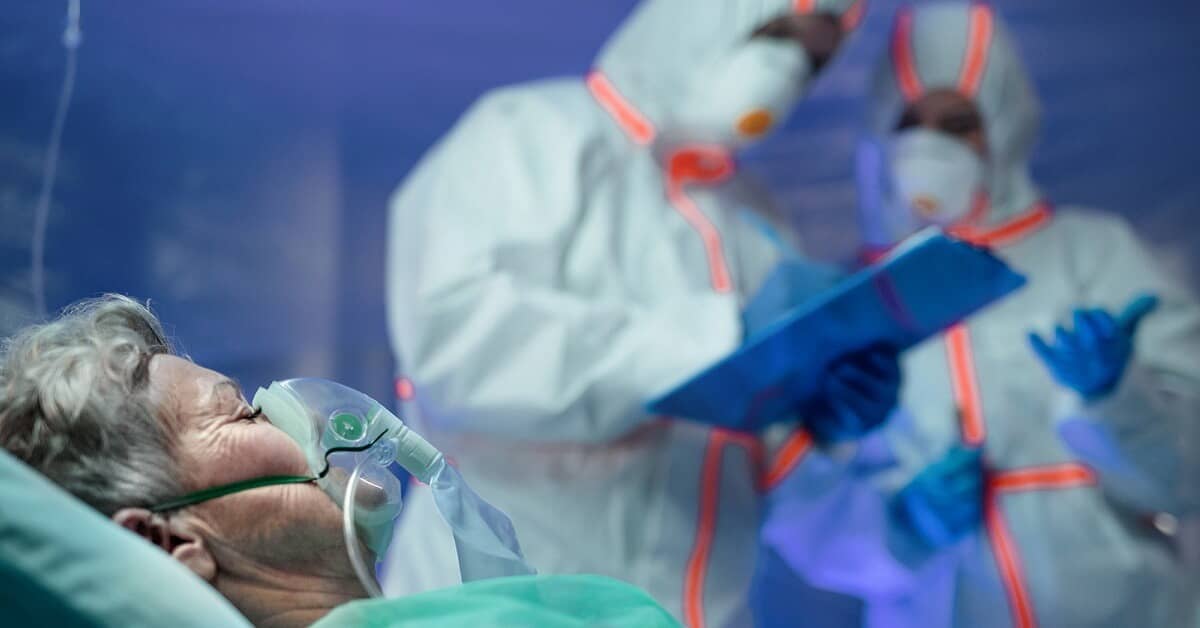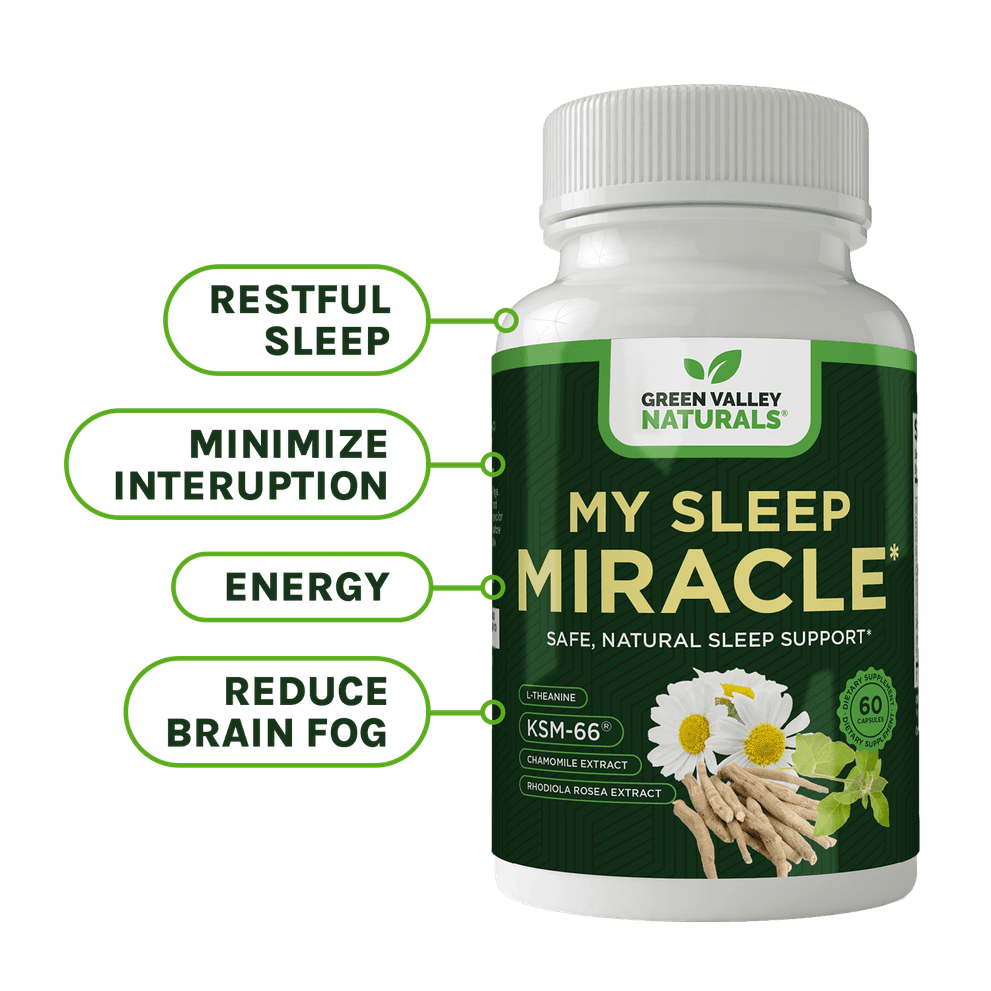
And he should know. Because Dr. McCullough, who has called our COVID pandemic “a disaster of a lifetime,” has not only personally treated more than 100 COVID-19 patients and painstakingly combed through the research into the disease, he’s also been infected himself.
Dr. McCullough called his experience with COVID “no picnic…no fun.” 2 But the illness has helped him get extra insight into how to help other people deal with this awful disease.
Dr. McCullough is considered high-risk for COVID complications in medical circles, because he has co-morbidities – other health issues that can make COVID more dangerous and raise the risk of serious complications. Dr. McCullough has atherosclerosis – some blockages in his arteries – along with high blood pressure and mild asthma.
When Dr. McCullough came down with COVID, he decided not to “wait and see” what happens. Instead, he began his own treatment protocol that he wants to share with others in hopes it will be of help.
Now, remember, I’m a journalist, not a doctor, and I’m not telling you what you should do if you get sick with COVID. Any information I provide is just to help you make your own informed decisions.
Dr. McCullough’s COVID Treatment Protocol
As soon as Dr. McCullough had a positive test for COVID he started using ivermectin – a medicine often used to treat scabies in humans and parasites in animals. This is the first I’ve heard of its use for COVID, so I was immediately interested.Research published in the journal Antiviral Research in June finds that ivermectin “inhibits the replication” of the coronavirus in a laboratory study.3 On the second day of his illness, Dr. McCullough started using hydroxychloroquine, a drug often used to treat malaria, but which has drawn attention for its potential use against COVID-19. I find the evidence for hydroxychloroquine persuasive, but the medical establishment has turned its back on this promising COVID treatment.
The Early Research Into Ivermectin, Hydroxychloroquine
The use of both ivermectin and hydroxychloroquine has become politically charged.Research released over the summer in major medical journals, such as The Lancet, questioned the drugs’ efficacy against COVID, as well as their safety. The Lancet was forced to withdraw its article attacking hydroxychloroquine after it was found to be flawed.
Questions surrounding the company that did the research abound. It has been suggested that the researchers themselves did not accurately report data.4 While all of this controversy is still being sorted out, I should point out that the FDA has not approved the use of ivermectin, as well as some of the other drugs Dr. McCullough has taken, for COVID treatment.5 As for hydroxychloroquine, the FDA revoked its emergency use authorization in June, saying it was “unlikely to be effective.”6 Back to Dr. McCullough’s protocol…
On that second day, he also began taking aspirin, azithromycin (an antibiotic) and zinc sulfate. He’d planned to start taking prednisone, a steroid, but as he started having trouble breathing and suffered from a persistent cough, he held off until his condition improved.
Dr. McCullough reports that while the ivermectin seemed to help relieve fever and chills and offset a general feeling of being rundown, the hydroxychloroquine seemed to be the most helpful.
“Hydroxychloroquine is long acting,” explains Dr. McCullough. “With every subsequent dose, you feel much better.”7
His Personal Treatment Plan
- Ivermectin – 12 mg for three days.
- Hydroxychloroquine – 200 mg twice a day early in his disease. He says that taking this drug early on produces better results than waiting until the illness becomes more serious.8
- Vitamin D3 - 5,000 IU a day. Several studies show that Vitamin D may help the body fight COVID.9
- Aspirin - 325 mg a day.
- Vitamin C - 3,000 mg a day.
- Zinc sulfate - 220 mg a day. Zinc supports the immune system and zinc lozenges have helped treat the common cold.10 [This is a high dose of zinc, appropriate only for a brief period when battling a virus.]
- Azithromycin - 250 mg twice a day. Azithromycin is an antibiotic that kills bacterial infections and can have anti-viral effects.11
I’d also like to note that while you’ll need a prescription for the drugs that Dr. McCullough took, the nutrients are affordable and easy to get. They’re also not controversial and carry no risk of side effects. In fact, early on in the pandemic, research out of China confirmed that vitamin C and vitamin D are effective in helping people heal from the coronavirus.
Other COVID Treatment Strategies
Dr. McCullough also advocates keeping windows open at home in order to reduce the risk of the COVID virus collecting in indoor air from an infected person. He adds that it can also lower the chances of “reinoculating” yourself with the virus (by breathing it back in), if you’re already infected.He also emphasizes that if you’re ill with COVID, you should clean off and sterilize all the surfaces in your house frequently to kill off viruses that can collect on those surfaces. And you should get in touch with anyone you have come into contact with to warn them they may be infected.
While Dr. McCullough didn’t mention it, it’s not a bad idea to have your own pulse oximeter.
This tiny battery powered device slides over your fingertip and uses infrared light refraction to measure your blood oxygen levels.
Dramatic drops in blood oxygen levels are a serious complication of COVID. Medical experts have said that a person with COVID will want to keep their level at or above 90 to 92. If the number drops below that range, contact a medical professional for treatment.13 It’s also worth noting the latest research published in The New England Journal of Medicine on the results of a study on the antiviral drug remdesivir.
Researchers found that remdesivir helps patients recover faster from COVID. The study, part of the Adaptive COVID-19 Treatment Trial (ACTT-1), randomly assigned 1,062 hospitalized COVID-19 patients to receive either a placebo or 200 milligrams (mg) of intravenous remdesivir followed by 100 mg daily for as many as nine days. After an average of ten days, the 532 patients assigned to remdesivir had recovered, while the 516 who received a placebo took an average of five more days, a total of 15 days, to improve.14 Finally, if you think you have been infected with COVID, seek knowledgeable medical help quickly, hopefully from someone with an open mind about some of the options discussed in this article. Any time you feel seriously ill you should go to a hospital emergency room right away.
I think it’s best not to wait until you’re sick to develop your COVID treatment plan. Last spring when the panic was at its height, I discussed with my doctor – an integrative MD – whether she was willing to prescribe me hydroxychloroquine if I was diagnosed with COVID. She said she would do that.

